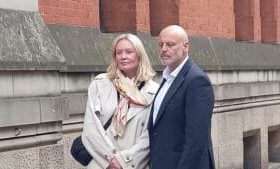Television dramas have long had a fascination with the legal world. From Rumpole of the Bailey and Kavanagh QC to Silk, The Split, and perhaps most memorably This Life, the profession is often portrayed as a chaotic cocktail of high-stakes cases, late nights, tortured personal relationships, and constant ethical dilemmas.
These portrayals capture the emotional intensity that legal work can bring, but they also create myths. The truth is often more grounded and, importantly for new lawyers and business leaders alike, more sustainable.
This Life and the Truth About Starting Out
Of all the legal dramas, This Life made one of the deepest cultural impressions, particularly on a generation of lawyers entering the profession. First aired in the mid-1990s, the series followed five young solicitors starting their careers while navigating messy relationships, self-doubt, and ambition.
What it got right was the emotional uncertainty that can accompany those early years: the pressure to learn quickly, adapt fast, and prove yourself. But it also portrayed a version of law that was relentless and all-consuming, which doesn’t have to be the case.
Many regional law firms today offer a more measured introduction. Junior lawyers are supported with manageable caseloads, mentoring, and time to grow. It’s possible to start your legal career with balance, not burnout.
My Legal Journey — and the Choice to Work Differently
I grew up in the Cotswolds and trained at BPP Law School in London before qualifying at a London firm. While the experience gave me a strong technical grounding, I realised early on that I wanted a career with more balance. One that wouldn’t demand I sacrifice wellbeing or family life.
I later joined Goughs, a regional firm where I could work on complex legal matters while living in the countryside and raising a family. Over time, I’ve progressed to Partner level, focused on private wealth and estate planning. Work that’s intellectually challenging, commercially significant, and invariably emotionally sensitive.
That level of progression simply wouldn’t have been possible in a large City firm. In many big practices, hierarchy can be rigid, and client access is heavily restricted in the early years. Instead, I was trusted early on with complex matters, encouraged to develop commercial instincts, and supported by senior colleagues who genuinely invested in my growth. It accelerated both my experience and my confidence — not exhaustion.
My work focuses on complex wills, wealth preservation, tax mitigation, estate planning, and agricultural estate matters, often advising high-net-worth individuals on intricate, multi-generational issues. This is serious legal work, with national significance, often encountering emotional weight. Many of the clients I work with have long-standing relationships with the firm, in some cases spanning generations. Families and businesses return to seek advice across many areas of law, from land and property to succession planning, family arrangements, and trusts. That kind of continuity reflects trust and the importance of getting it right over time.
A Career Built for Balance
Where you choose to work shapes more than just your career — it influences your wellbeing, your values, and your long-term resilience. I work hard, but not at the expense of what matters most. I have time with my young children, time outdoors in a natural, healthy environment, and space to decompress and reflect.
This lifestyle brings clarity, energy, and perspective, the opposite of the stress and fragmentation that often comes with city living. It’s a life I’ve chosen intentionally, and one that Goughs has supported every step of the way.
The Role of Meditation in Professional Resilience
Meditation is another essential tenet of my daily life, and one that I believe plays a powerful role in long-term professional resilience. I practise Transcendental Meditation (TM), a method developed by Maharishi Mahesh Yogi and more recently championed by film director David Lynch.
Each day, I rise at 5am and begin with Wim Hof breathing exercises, followed by 20 minutes of TM. I repeat the practice again in the evening, creating two points of stillness and clarity within otherwise busy days. In TM, a mantra is used to maintain focus and presence during meditation. This practice fills me with calmness, confidence, and self-assurance, qualities that are vital in legal work, especially when navigating emotionally charged or high-value matters.
I was introduced to TM by my father-in-law, a very senior business leader who attributes much of his success to the discipline and clarity meditation brought him. It’s a practice that I believe has immense potential within the professional world. TM trainers offer corporate programmes, and I think workplaces should consider meditation not as a ‘wellness perk’ but as a strategic investment in performance and resilience.
Lessons for Business Leaders: Managing Pressure Without Sacrificing People
The pressures commonly associated with the legal profession—such as long hours, high expectations, and complex client dynamics—are not unique to our sector. Many business leaders will recognise the same stress points in their own teams.
Three patterns in particular that stand out and need to be mitigated are:
Burnout: Professionals juggling deadlines, client demands, and performance metrics often push too far, for too long.
Perfectionism: The need for precision, particularly in regulated sectors, can create a culture of anxiety and overworking.
Imposter Syndrome: Even high-performing individuals can struggle with self-doubt, a silent but potent source of stress.
These issues aren’t inevitable. They can be designed to be prevented with the right culture and leadership.
What Healthy Culture Looks Like
In my experience, people thrive when mental health is taken seriously, not as an add-on, but as a core part of how the organisation functions. That means having systems, support, and leadership that recognises people as people, not just productivity units.
When wellbeing is embedded, not performative, it builds trust. That trust shows up in better retention, stronger teams, and more open conversations.
What the Modern Law Firm Can Teach Every Business
Whether you’re running a legal team, a creative agency, or a tech startup, the modern workplace requires smarter leadership. Here are four takeaways from how the legal profession is evolving:
Prioritise structure and culture over optics
Don’t be fooled by appearances — the slickest offices or biggest names don’t always deliver the best outcomes, for staff or clients. Sustainable performance comes from clarity, fairness, and internal trust.
Normalise mental health conversations
Don’t wait for a crisis. Invest in systems, people, and leadership practices that keep wellbeing on the radar every day. Cultural change starts with consistent visibility, not one-off gestures.
Reward people based on impact, not hours
Clients don’t care how long someone sat at their desk; they care whether their problem was solved. Smart leaders measure outcomes, not presenteeism.
Encourage autonomy
People do their best work when trusted to shape their careers and manage their own balance. The most resilient professionals aren’t micromanaged; they’re supported and empowered.
Advice to New Lawyers or Anyone Starting Out or Again
Whether you’re qualifying into law, changing sectors, starting a new business, or just beginning your career, remember: your environment matters.
Look for a workplace or make sure to develop a workplace that:
Supports your development through structure and mentorship
Values wellbeing alongside performance
Encourages balance rather than celebrating burnout
Invests in you as a whole person, not just your hours
You don’t have to replicate This Life’s chaos to succeed in law, or any profession.
Phillip Bolton is a Partner at Goughs Solicitors, Head of the Private Wealth Team, Deputy Head of the Private Client Department, and leads the firm’s Corsham office. He is a Legal 500–recommended lawyer with a focus on complex wealth, estate, and tax planning for high-net-worth individuals and family businesses.
Read more:
From This Life to The Split: rethinking the lawyer’s life – beyond courtroom portrayals








